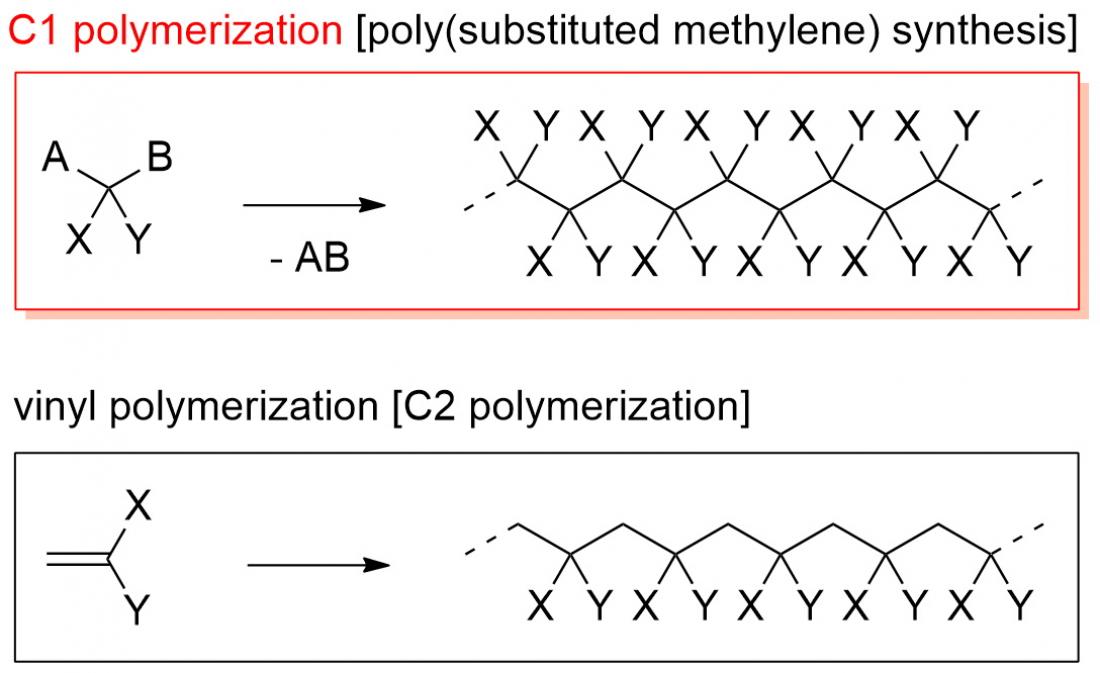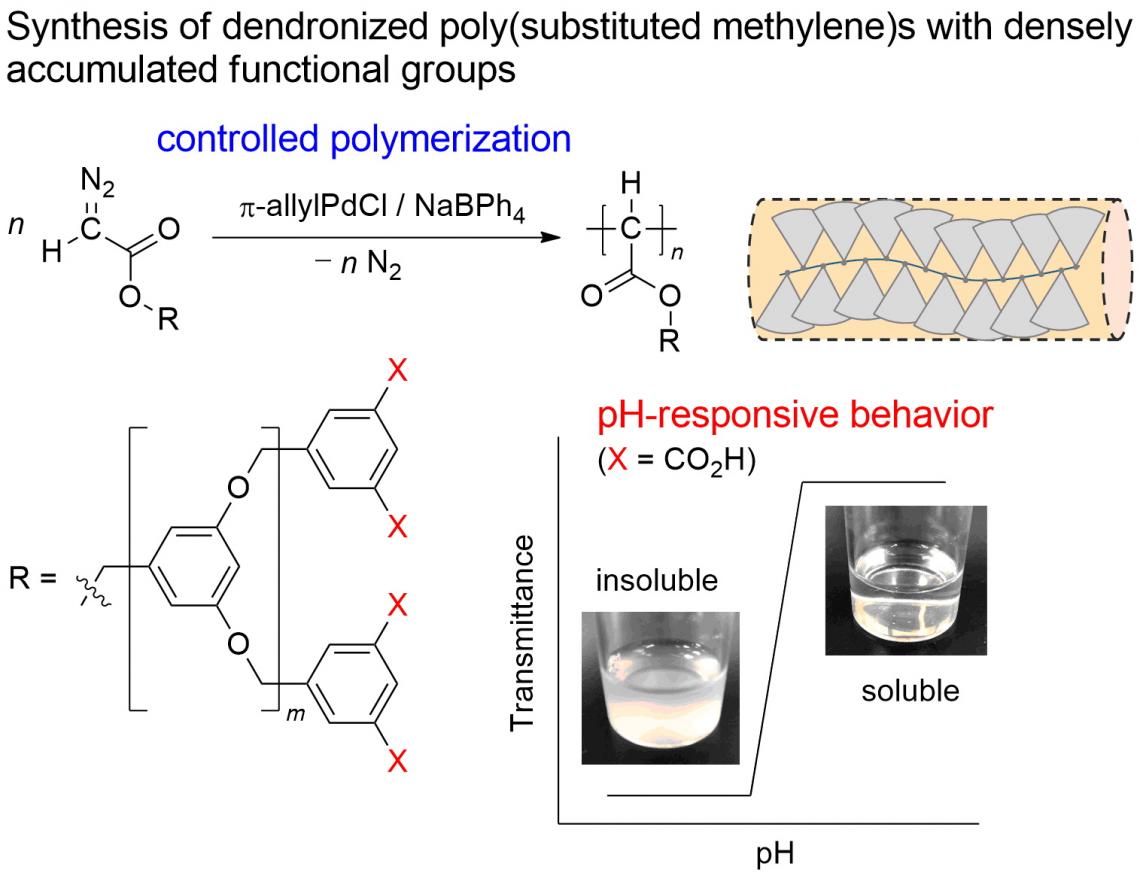Vinyl polymerization and C1 polymerization
C1 polymerization is a useful technique for preparing polymers with a carbon-carbon main chain. This technique constructs a polymer backbone from “one carbon unit”, in contrast to conventional vinyl polymerization, which produces polymers from a “two carbon unit” derived from vinyl groups. The representative characteristic of C1 polymerization is that it can yield carbon-carbon main polymers having a substituent on each main chain carbon atom [poly(substituted methylene)s]. For the C1 polymerization system, diazoacetates are suitable monomers, yielding polymers with an alkoxycarbonyl group (ester) on each main chain carbon atom.
Stimuli-responsive polymers or smart polymers are macromolecules that undergo a change in properties in response to external stimuli, such as temperature, pH, light, and additives. Their stimuli-responsive behavior strongly depends on the primary structure of the polymer, and thus precise synthesis is necessary to develop smart materials with superior properties. Precise C1 polymerization for diazoacetates is still a challenge, whereas various controlled/living polymerization techniques of vinyl monomers have been achieved to give well-defined stimuli-responsive vinyl polymers. In this context, with the results reported in this report, we have demonstrated that diazoacetates with a sterically bulky substituent can be polymerized in a controlled manner with the π-allylPdCl/borate systems to yield polymers with narrow molecular weight distribution. In addition, we have successfully synthesized carboxy-functionalized dendronized polymers and demonstrated the characteristic pH-responsive behavior derived from the dense accumulation of the side chains in comparison to the corresponding vinyl polymers bearing the same side chains. The introduction of functional groups, other than a carboxy group, in the peripheral phenyl groups should result in a high density of the functional groups around the rigid main chain. These structural characteristics will lead to development of a variety of new functional poly(substituted methylene)s in the near future.
pH-responsive dendronized poly(substituted methylene)s prepared by C1 polymerization of dendron-containing diazoacetates




